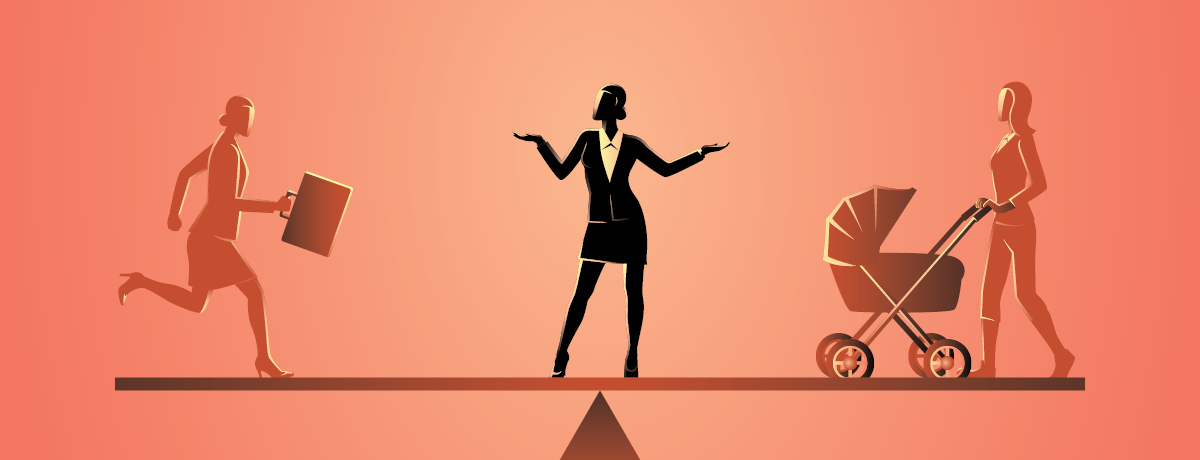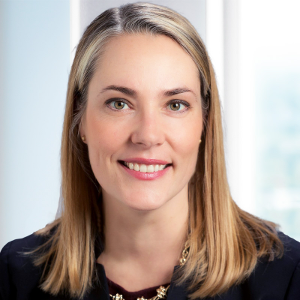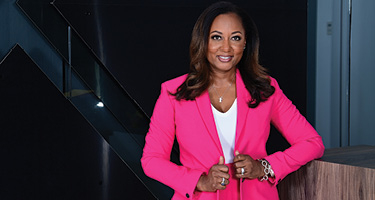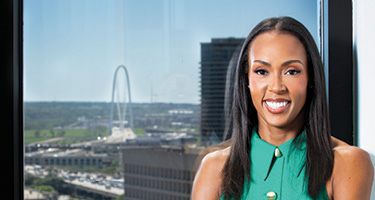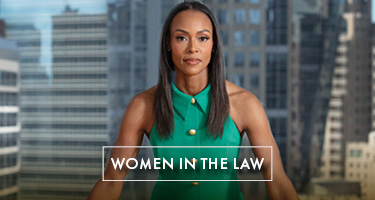When my husband and I graduated from law school as newlyweds, our plan was to work hard as young lawyers, but not so hard that we couldn’t focus on the family we planned to have. Rob and I believed that with two careers we could perfectly balance work and family.
To say we were naive is an understatement.
Today I’m a partner in a litigation boutique and lead counsel for a rapidly growing list of clients—and the mother of a daughter in high school and a son in middle school.
I’m also the sole breadwinner for our family.
Rob and I first broke with the norm when we started our family as second-year lawyers. After our daughter was born, we were immediately confronted with the challenge of balancing two litigation careers and a newborn. The idea that we could each be 50% lawyer and 50% parent proved untenable.
Law is a demanding profession with little room for error. Mistake-free work takes time—often uninterrupted time, which means working nights and weekends. Kids are also demanding and, thankfully, more forgiving of your foibles, but they don’t arrange their needs and schedules around those of your clients.
As Rob and I juggled two careers and parenting, it was usually his career that gave way. I started in Big Law with the prospect of making partner and the financial security that came with it. Rob began at a small firm with a less defined path of advancement.
This dynamic spun into hyperdrive as I entered my lookback period for partnership. Rob insisted that I push my career toward partnership. He believed in me more than I believed in myself. He wanted me to have a successful law practice for me and our family, and he never criticized me for putting my job before his job or our family.
I think our decision was also more difficult because it contravened societal norms, including our own belief in the 'normal' role of a mom and dad in a family."
When I questioned if I was too focused on my career and not enough on our family, he would reassure me that I was a great lawyer and a great mom. I didn’t have to choose.
We continued to juggle two careers and two kids until the wheels fell off a few years later. Rob and I were both getting ready for trial. Our kids were too young to babysit themselves. We needed 24-hour support to get by.
Rob was the one who first declared that things weren’t working.
Had our roles been reversed, I assume the decision would have been easier, and one we’d have made sooner. Instead, our transition was slow and, at times, painful. First, Rob went part-time. Again, we were naive: There is no such thing as a part-time trial lawyer. And kids get sick and have summer breaks. Rob was unhappy and felt he never had enough time to work or parent. Eventually, he retired from law completely.
Deciding to end a career is always hard, and Rob had other factors at play. Neither of his parents had gone to college. His law career was important to him. I think our decision was also more difficult because it contravened societal norms, including our own belief in the “normal” role of a mom and dad in a family.
It’s time we stop boxing mothers and fathers into narrow roles. Today, there are many families like ours, in which Mom significantly out-earns Dad, but there’s still a stigma attached to a mom who puts her career “before” her family and her husband’s career—and an even greater stigma on a stay-at-home dad.
If we truly value equality in the workplace, we must value and support fathers who step back from their career and support moms who opt to reach for that next promotion. Giving lawyers the flexibility to choose the path that best fits their circumstances is good for firms and clients alike. My career flourished after Rob fully retired from law. We no longer had to juggle family and career scheduling challenges. Rob took care of sick kids and doctor’s appointments. I could just call home if I had to work late or had a networking event. This freed me to focus on making partner and developing a client base, both of which I achieved.
This has all given me greater career flexibility and boosted my family’s financial stability. But only after I achieved success was I confident Rob and I had made the right decision. For years I was plagued by self-doubt. Did I care about my family less? Was I a good enough lawyer to financially support my family alone?
When I look back, I have so many things to be thankful for and proud of in both my personal and professional lives. I’m proud of the career I’ve built and the kids I’ve raised. Sometimes I’ve focused more on my career; other times I’ve given more attention to our family. With Rob’s support—and that of my partners and clients—I had the space to make thoughtful decisions about when and how to prioritize each to ensure I built the life I wanted. I’ve learned to reframe how I define a successful career and a happy family into a situation that works for my circumstances. I’ve also learned to keep reframing it as circumstances shift.
Our family dynamic recently changed when Rob was hired to start the baseball program at our children’s school. It’s been a dream of his. The stipend he receives does little to change my status as sole breadwinner, but no longer being the only parent working outside the home has required us to reframe things again. If Rob hadn’t quit law, he would not have had this opportunity. And had he not supported my career growth and success, I might not be in the position to better balance my law practice with raising our kids, which enables me to support his dreams now.
As law students, Rob and I couldn’t have imagined what our lives have become. We just kept choosing the path that felt right, even when it seemed out of step with societal norms. It’s a life filled with ups and downs, and I’m proud of it.
Courtney E. Ervin is a trial partner at Houston-based Hicks Thomas, where she represents clients in the insurance, energy and private equity industries. She handles a variety of complex business disputes ranging from pre-litigation counseling to trial in state and federal courts and in arbitration. Ms. Ervin is a 2023 Premier Women in Law honoree and has been regularly recognized by The Best Lawyers in America®, Benchmark Litigation and Texas Super Lawyers.
